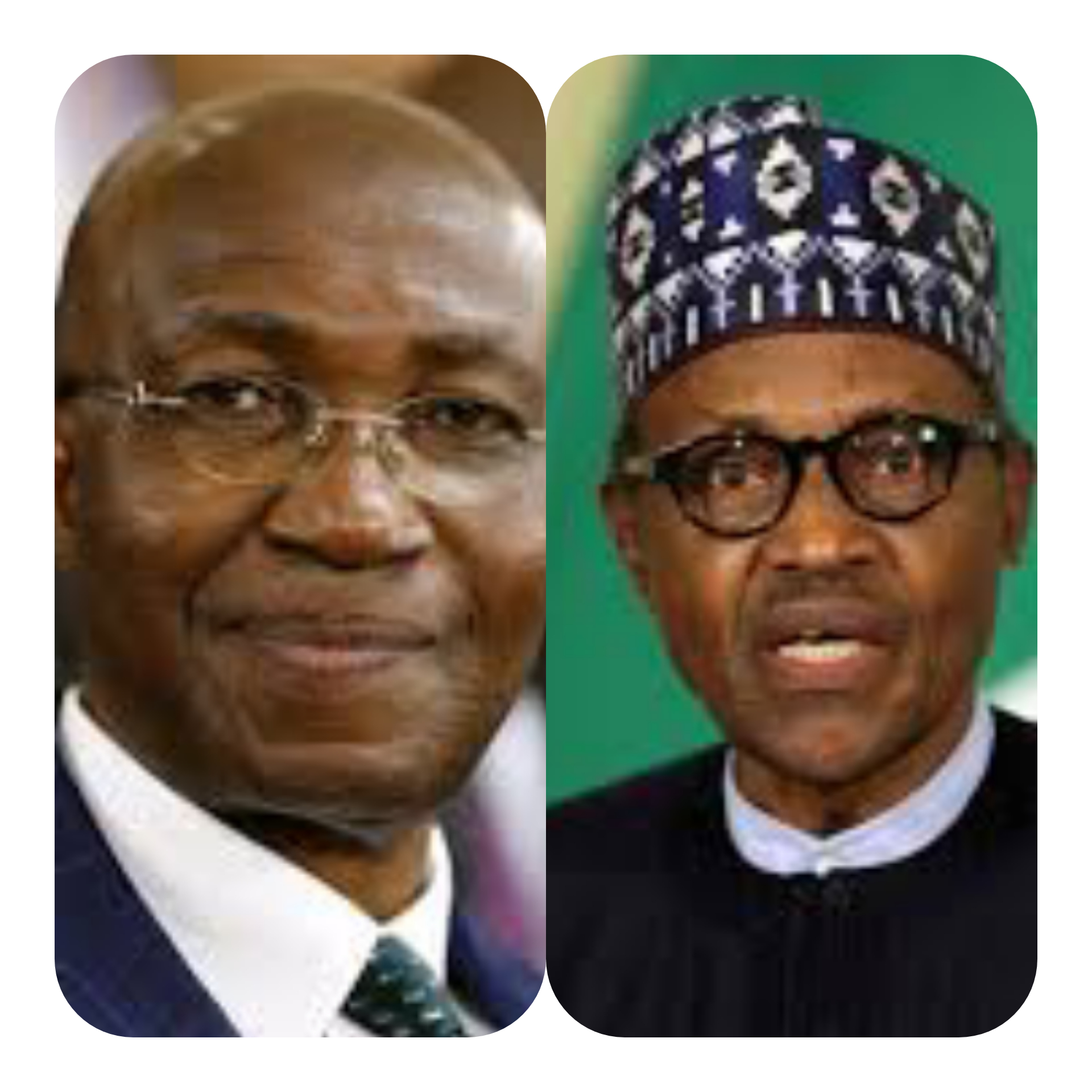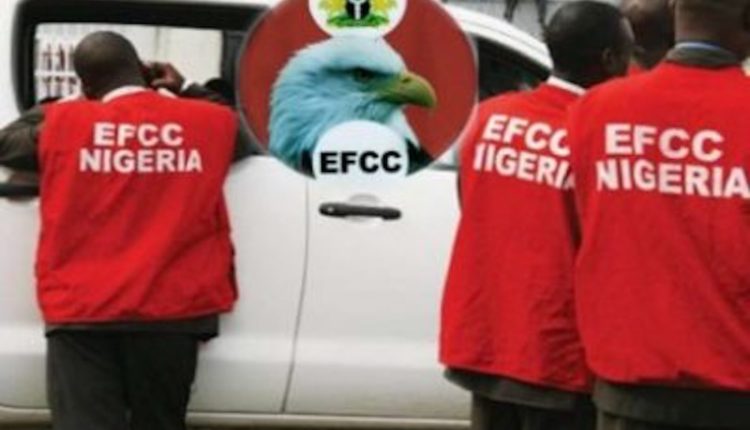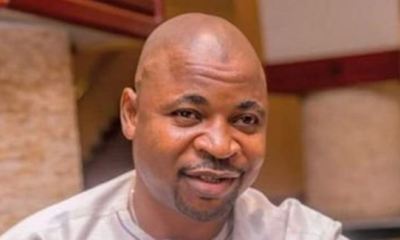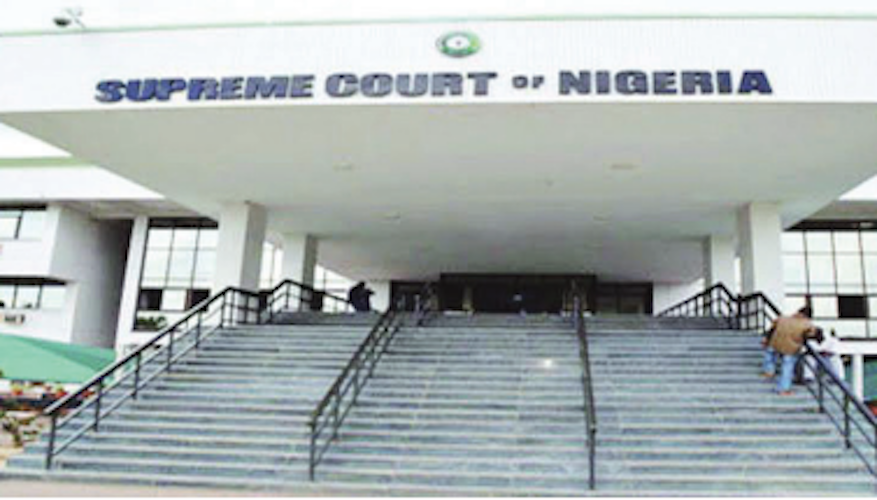Law
Welfare of judges: Olanipekun discloses how Body of benchers prevailed to commit Buhari to upward review of salary

The Chairman of the Body of Benchers (BoB), Chief Wole Olanipekun, SAN has revealed that the body has succeeded in getting President Muhammadu Buhari’s commitment to improve the welfare of judges in the country.
This is coming as a glimpse of hope for judicial officers in the country and stronger judiciary for the commonman.
The chairman indicated that President Buhari has graciously acceded to the request of the Benchers for the upward review of salaries and emolument of judges in the country.
Olanipekun, a former President of the Nigerian Bar Association (NBA) made the revelation while speaking in Abuja on Sunday at an event held to mark the 80th birthday of a retired Justice of the Supreme Court and traditional ruler of Tuomo Kingdom, in Burutu Local Area of Delta State, Justice Francis Fedode Tabai.
The ex-NBA President, who led a team of Body of Benchers to interface with President Buhari last Thursday, further revealed that the team succeeded in extracting commitment from the President to ensure an enhanced welfare package for judicial officers and a comprehensive rehabilitation of the entire Judiciary.
At the end of the interface, Olanipekun said that President Buhari issued a directive to those in charge to immediately commence work on the 2018 report of an Advisory Committee that has been submitted to him
Besides, the legal luminary also said that the Presidency agreed to upgrade the contents of the 2018 reports to bring it in tune with current realities.
He added that the poor welfare conditions of judges got so bad that he had to lead the current leadership of the BoB to President Buhari, and they were able to “extract an undertaking from Mr President to upgrade the salaries of the Judiciary”.
“We were frank with the President. We told him everything. We also told him that if we don’t maintain justice, justice will undo us soon. We told him how we interfaced with Justices of the Supreme Court on one hand to ascertain their working conditions.
“We told him how bad things are with the Judiciary; that Justices are not encouraged, that they are underpaid, that what they give to justices are peanuts when compared with the other arms of government.
“In fairness to Mr. President, perhaps, he did not know the gravity of the situation until I explained everything to him when we met him last Thursday.
“And, in fairness to him (Buhari), he said there are three arms of government. He agreed that each of the three arms must be treated equitably and fairly. And that, no one should be subjugated to the others, and no one should be treated as a slave.
“The way I see it today is that the Judiciary is being beaten and you are asking the Judiciary not to cry. The Judiciary is crying silently from within. You can hear the grumbling. You can see the tears.
“The President gave his commitment voluntarily. It was in response to my address. He promised to take immediate action, and that for now, he is giving a directive to those in charge to dust the report that is on ground and act as we have requested.”
According to Olanipekun, “it is those who suffers from injustice that knows what it means “, adding that after they drew the attention of President Buhari to the plight of the Justices, he agreed with us that something must be done immediately.
Responding to questions, Olanipekun said, “the President gave his commitment voluntarily. It was in response to my address, that the President assured that he was going to take immediate action.
“For now, the President has given instructions to those in charge to dust a report that is on ground, which was submitted in 2018 on judges’ welfare and act as we have requested.”
On whether the President gave a timeline for the execution of his instructions, Olanipekun said they have elected to take President Buhari by his words.
“Well, you know he is the President, and we went visiting him and customarily, we cannot demand that the President should give us a timeline. If a President has given his words that he will act, we believe him.
Olanipekun, who argued that the Judiciary was unfairly treated when compared with the other arms of government, noted that: “Today you can hear the grumbling, you can see the tears of the Judiciary, though they are not coming out. The Judiciary is crying silently.
“We all watched and heard what happened at the Supreme Court . If gold rusts, what happens to other metals? In this context, the Supreme Court is the gold. And if the Justices of the Supreme Court can cry out over poor remuneration , then what happens to those in the lower courts?
According to Olanipekun it is unfair that a Justice of the Supreme Court takes home N250,000 monthly salary and a cumulative pay of N750,000 per month compared to a Senator who earns not less than N3million a month.
He however, assured that he would commit his tenure at the BOB to work with relevant stakeholders to improve the standard of the Judiciary, stressing that “this is not a time for distraction, it is time for collaborative action on the part of us in the legal profession.
Pouring eulogies on the erudite Justice of the apex court at 80, Olanipekun said in developed countries his Lordship would still be in service, giving his best to his fatherland but unfortunately a justice in Nigeria had to retire at 70.
While disclosing that he was once against the early retirement of judges, but that in view of the current unenviable state of affairs in the Judiciary, he has long jettisoned such position.
Law
EFCC Grants Bail to Two Kogi Officials, wants Yahaya Bello’s Fraud Case adjurned

The Economic and Financial Crimes Commission (EFCC) has granted administrative bail to two co-defendants, Umar Oricha and Abdulsalami Hudu, in a fraud case involving former Kogi State Governor, Yahaya Bello. The case, centered on charges of fraud totaling N101.4 billion, has been adjourned until November 27, 2024, by the Federal High Court in Abuja.
At the hearing before Justice Maryann Anenih, EFCC Counsel Jamiu Agoro requested an adjournment, noting that the 30-day compliance period for Bello’s summons, issued on October 3, had not yet expired. Agoro explained that the November 20 court date was inconvenient for the prosecution, and that seeking an arrest warrant would be premature as Bello still had a few days to respond to the summons.
Both the second and third defendants’ legal representatives supported the adjournment request.
Following this, Justice Anenih approved the EFCC’s request, extending the deadline for Bello’s appearance and authorizing service of the hearing notice to be sent to his last known address.
In a parallel development, the Federal Capital Territory (FCT) High Court in Maitama ordered a hearing notice to be posted at Bello’s residence on Benghazi Street, Wuse Zone 4, Abuja, and on the court’s notice board.
This step follows multiple missed court appearances by Bello since the public summons was issued, urging him to appear for arraignment on 16 counts related to the alleged fraud.
Justice Anenih emphasized the importance of due process, setting November 27, 2024, as the final date for Bello’s court appearance. This case has drawn attention to the EFCC’s efforts to enforce accountability among high-profile figures in Nigeria amidst allegations of large-scale financial mismanagement.
Law
Appeal Court Sacks MC Oluomo as NURTW National President, Reaffirms Baruwa’s Leadership

In a significant development, the Court of Appeal has annulled the appointment of Musiliu Akinsanya, popularly known as MC Oluomo, as the National President of the National Union of Road Transport Workers (NURTW).
The ruling upheld a previous ruling by the National Industrial Court, which had already recognized Tajudeen Baruwa as the rightful leader of the union.
The legal dispute surrounding the NURTW’s leadership has been ongoing, with tensions escalating within the organization.
Despite the court’s ruling in favor of Baruwa, MC Oluomo was recently elected by the Southwest Zone of the union during the Quadrennial Delegate Conference held last week in Osogbo, Osun State.
This election took place amid growing concerns and disputes within the union’s regional factions.
The Appeal Court’s decision is expected to settle the leadership question, restoring Tajudeen Baruwa’s position as the legitimate National President of the NURTW.
However, the union faces potential challenges in maintaining unity across its various regional branches, as supporters of MC Oluomo continue to advocate for his leadership.
This ruling marks a pivotal moment for the NURTW, as it works to stabilize its governance and address internal divisions that have led to several controversies and disputes over recent years.
Law
Supreme Court Rejects States’ Legal Challenge to EFCC’s Constitutionality

The Supreme Court of Nigeria has thrown out a lawsuit brought by several state Attorneys General challenging the constitutional validity of the Economic and Financial Crimes Commission (EFCC). The case, led by Kogi State, questioned the EFCC Act, arguing that it bypassed constitutional requirements regarding international treaties.
The seven-member panel, headed by Justice Uwani Abba-Aji, ruled unanimously to reject the lawsuit, deeming it without merit. Kogi State’s counsel, Mohammed Abdulwahab, SAN, argued that the EFCC Act’s incorporation of the United Nations Convention Against Corruption was unconstitutional, as the law had not received approval from a majority of state Houses of Assembly, as required by Section 12 of the 1999 Constitution. This, he claimed, invalidated the EFCC Act and similar anti-corruption laws.
The plaintiffs also contended that the EFCC and NFIU lacked the authority to investigate state or local government funds, accusing the agencies of encroaching on state powers. Abdulwahab sought a court ruling to nullify the creation of these agencies, arguing it would prevent a potential constitutional crisis.
Attorney General of the Federation, Lateef Fagbemi, SAN, defended the EFCC, asserting that dismantling Nigeria’s anti-corruption agencies would harm the nation’s efforts to combat financial crimes. He argued that the National Assembly has the authority to create laws applicable nationwide to address corruption.
The court ultimately upheld the EFCC Act, ruling that the National Assembly’s legislative powers on corruption are valid and enforceable across all states. Justice Abba-Aji noted that Kogi’s revelations about state officials being investigated exposed ulterior motives behind the lawsuit, describing it as an attempt to shield certain officials.
“No state has the right to enact laws that contradict the statutes passed by the National Assembly,” Justice Abba-Aji said, delivering the judgment. The court dismissed the suit in its entirety, reaffirming that the EFCC Act and other federal anti-corruption laws remain constitutional and enforceable across Nigeria.
-

 Crime1 year ago
Crime1 year agoPolice nabs Killer of Varsity Lecturer in Niger
-

 News10 months ago
News10 months agoFCT-IRS tells socialite Aisha Achimugu not to forget to file her annual returns
-

 Appointment1 year ago
Appointment1 year agoTinubu names El-Rufai, Tope Fasua, others in New appointments
-

 News From Kogi1 year ago
News From Kogi1 year agoINEC cancells election in 67 polling units in Ogori-Magongo in Kogi
-

 News From Kogi1 year ago
News From Kogi1 year agoEchocho Challenges Tribunal Judgment ordering rerun in 94 polling units
-

 News1 year ago
News1 year agoIPOB: Simon Ekpa gives reason for seperatists clamour for Biafra
-

 Metro8 months ago
Metro8 months ago‘Listing Simon Ekpa among wanted persons by Nigeria military is rascality, intimidation’
-

 News10 months ago
News10 months agoKingmakers of Igu/ Koton-Karfe dare Bello, urge him to reverse deposition of Ohimege-Igu
